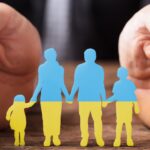People like Kyaw need their story to be heard. Just listening and believing can be therapeutic.
My last patient of the day was 49-year-old Kyaw.
Kyaw is new to the practice. He arrived in Australia in 2019 as a refugee from the Karen state of Burma, a region that has experienced unrest for decades.
Kyaw was shot in the knee by the militia in 2002. There was no access to healthcare in his village. The only treatment he had access to was rest and care from his community. Kyaw’s broken bones malunited, resulting in a completely ankylosed tibiofemoral joint. He had zero degrees of flexion in his knee.
Kyaw arrived in Australia as a refugee who applied for his visa while overseas and hence was one of the “lucky” ones who avoided detention in one of the various hells that are our offshore detention centres. From the time Kyaw left his village, moved to a refugee camp on the Thai-Burma border, registered with the UNHCR and obtained his visa, it was 21 years. Family members died during the long wait.
No wonder so many of our fellow human beings fleeing conflict choose instead to pay their life savings to a people smuggler and risk a perilous journey in unseaworthy boats to seek safety on our shores. For this effort at survival, our government locks them up and deprives them of their humanity.
Kyaw’s story is typical of most of the patients I see at the Utopia Refugee and Asylum Seeker Health clinic in western Melbourne. Most of my patients have spent on average 20 years in a refugee camp before coming to Australia.
As someone who spends the entirety of my working day with refugees and asylum seekers, I often get asked by fellow GPs how best they can support patients like Kyaw.
His disability, difficulty in speaking English, limited formal education and scars of the trauma he has suffered mean that the only work he can get is hard on his body and poorly paid. Kyaw has access to Medicare, but in a healthcare system that is totally broken, his access to primary care is a choice between a bulk-billing clinic that is so squeezed that even taking the time to get an interpreter makes an unreasonable impact on the business, or a private clinic he most certainly will not be able to afford. The referral to a public orthopaedic service will leave him waiting two years before he can be seen and another two before he will have the surgery that he needs.
So, what can we as GPs do for people like Kyaw in a healthcare system that penalises those of us who work with deprived communities?
A good starting point would be to appreciate that the reason we are enjoying the good life, while refugees are barely surviving, is because of the accident of birth. Kyaw happened to be born to parents in a village in a country riven by strife. I was born into entirely different circumstances.
What if the hand that I was dealt meant that I was born in Syria or Ukraine or Congo? What if tomorrow I am displaced from my home because of a flood or another natural disaster? How would I like to be treated? Which policies and politicians would I throw my support behind?
People like Kyaw need their story to be heard. Just listening and believing can be therapeutic.
The limitations of our health system make it impossible to stop, breathe, face away from our screen and listen, without interrupting, to stories of trauma and suffering.
My patients tell me that they choose my clinic because we use interpreters. At most other services they have not been granted their request for an interpreter to be present. Australian doctors have free access to interpreters both onsite and over the telephone. A recent Medicare change allows us to bill a longer consultation item number if an interpreter was used, regardless of the complexity of the consultation. Take advantage of this service.
My fellow GPs at the clinic I work at are no different from the average Australian GP. They have mortgages to pay, families to provide for and young children to care for. Being human is the only qualification required to show compassion. Listen. Be Kind. Stand up for the rights of society’s most marginalised people. It’s what you would want if the shoe was on the other foot.
Dr Lester Macarenhas is the founder of Utopia Refugee and Asylum Seeker Health. He has worked in cross-cultural medicine for more than 10 years, initially with First Nations Australians in remote communities and then with refugees and asylums seekers in Melbourne.





